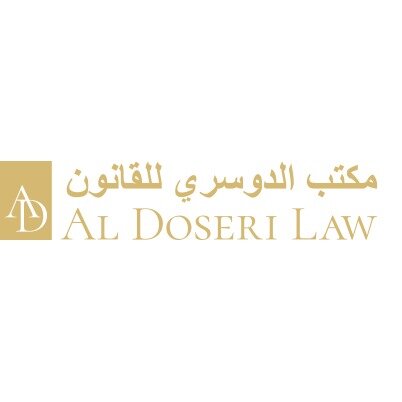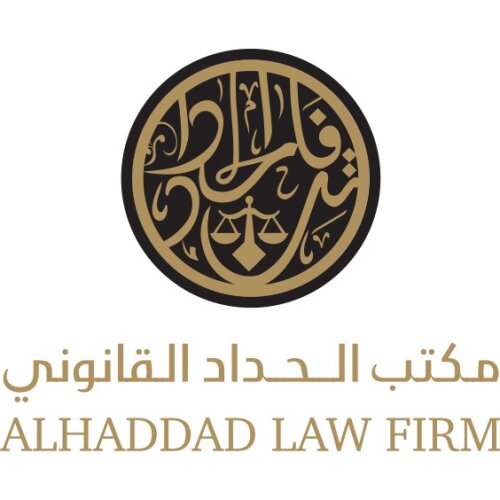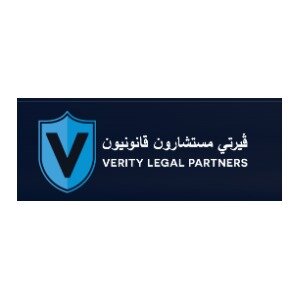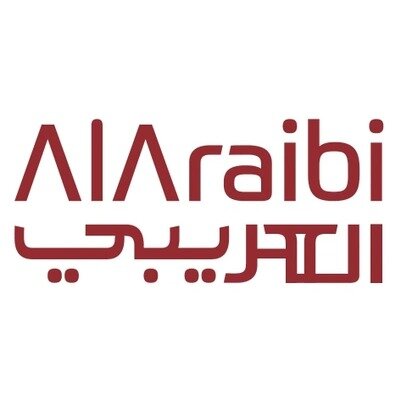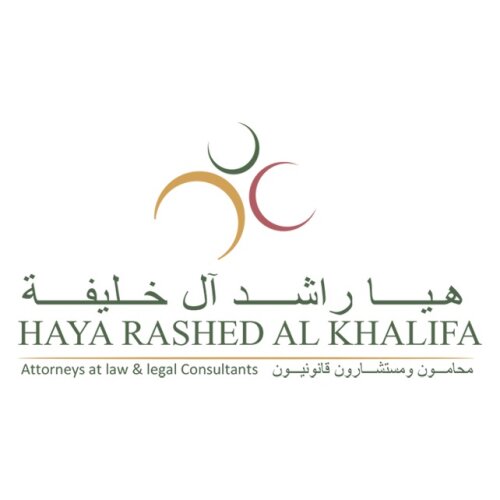Best Energy, Environment & ESG Lawyers in Manama
Share your needs with us, get contacted by law firms.
Free. Takes 2 min.
List of the best lawyers in Manama, Bahrain
About Energy, Environment & ESG Law in Manama, Bahrain
Energy, Environment and ESG (Environmental, Social, and Governance) law in Manama, Bahrain, is a rapidly evolving field. As Bahrain continues its economic development and diversifies away from oil, the importance of sustainable energy practices, environmental protection, and responsible governance is growing. This area of law covers matters related to energy production and usage, natural resource management, pollution control, corporate environmental responsibility, and transparency in corporate social governance. Businesses and individuals in Manama are increasingly required to comply with both local laws and international standards aimed at ensuring environmental sustainability and ethical corporate behavior.
Why You May Need a Lawyer
Legal issues surrounding energy, environment, and ESG in Manama can be complex and highly regulated. You may need a lawyer if you are:
- Launching or operating an energy business, such as oil, gas, renewable energy, or utilities
- Seeking project financing for energy or environmental developments
- Facing penalties or investigations for environmental violations, such as pollution or improper waste management
- Requiring permits or approvals for construction, industrial, or mining activities
- Negotiating environmental clauses in commercial contracts
- Addressing workplace health and safety in industrial or energy sectors
- Implementing ESG policies as required by investors, regulators, or stakeholders
- Responding to new regulations issued by Bahraini authorities
- Conducting environmental due diligence or impact assessments
- Ensuring ongoing compliance with local laws and international standards
A lawyer with experience in this field can help you navigate these challenges, avoid costly mistakes, and ensure your interests are protected.
Local Laws Overview
Bahrain has made significant strides in developing legal frameworks for energy, environmental protection, and ESG compliance.
- Energy Regulation: The National Oil and Gas Authority (NOGA) regulates oil and gas operations. Bahrain is also investing in renewable energies, with growing regulations for solar and wind projects.
- Environmental Protection: The Supreme Council for Environment (SCE) is the key regulatory body overseeing environmental laws. The Environment Law (Law No. 21 of 1996 and its amendments) covers air, water, and land pollution, hazardous waste, and environmental permits for major projects.
- Corporate ESG Duties: Bahrain Bourse (the national stock exchange) has issued ESG Reporting Guidelines, and listed companies are encouraged to disclose their environmental and social impacts and governance practices. This aligns with global trends and investor expectations.
- Compliance and Enforcement: Enforcement measures can include fines, suspension of operations, and even criminal liability in severe cases of environmental harm or regulatory breaches.
- International Commitments: Bahrain is signatory to various international environmental conventions and is progressing towards greater environmental transparency and reporting standards.
Frequently Asked Questions
What is ESG, and why is it important in Bahrain?
ESG stands for Environmental, Social, and Governance. It refers to the set of standards measuring a business's impact on the environment, its relationship with employees and communities, and the quality of its leadership and transparency. In Bahrain, ESG is increasingly relevant due to investor demand and regulatory developments aimed at sustainable growth.
Do I need a permit to start a renewable energy project in Manama?
Yes, most energy projects require permits from relevant authorities, including site approvals, environmental impact assessments, and operational licenses. The requirements depend on the size and type of the project.
What are the main environmental regulations businesses must comply with in Manama?
Businesses in Manama must comply with Bahrain’s Environment Law, which covers pollution control, waste management, use of hazardous materials, and environmental permitting. Supplementary regulations may apply based on industry and location.
Are there incentives for adopting green energy in Bahrain?
Bahrain has introduced initiatives and pilot schemes to promote renewable energy and energy efficiency. These may include financial incentives or support for solar and wind power but specific incentives vary over time and should be confirmed with current government programs.
What penalties could I face for violating environmental laws in Manama?
Penalties can include fines, suspension or revocation of licenses, mandatory remedial actions, and potentially criminal prosecution for serious violations, such as illegal dumping or unchecked hazardous emissions.
How can companies in Manama report on ESG performance?
Publicly listed companies are encouraged to follow the Bahrain Bourse ESG Reporting Guidelines. Many companies also voluntarily publish sustainability reports in line with international standards, such as the Global Reporting Initiative (GRI).
Who enforces environmental laws in Bahrain?
The Supreme Council for Environment is the primary authority enforcing environmental laws, along with other agencies relevant to energy, health, and industry.
Is environmental due diligence necessary when purchasing land or business assets?
Yes, environmental due diligence is recommended and sometimes legally required before acquiring land or assets. This helps identify potential liabilities and ensures compliance with existing regulations.
Can environmental violations be resolved out of court?
In some cases, regulatory authorities may allow negotiation, settlement, or corrective action plans. However, serious violations may proceed to administrative or criminal proceedings.
What should I do if I receive a notice of environmental violation?
You should act promptly. Engage a qualified lawyer to review the notice, advise on your rights, help you respond to the authority, and guide you through the compliance or appeals process if needed.
Additional Resources
If you need more information or assistance, consider the following resources:
- Supreme Council for Environment - Responsible for environmental policy, permitting, and enforcement in Bahrain
- National Oil and Gas Authority - Oversees oil, gas, and energy regulation
- Bahrain Bourse - Provides ESG reporting guidelines for listed companies
- Ministry of Industry and Commerce - Handles business licensing and industrial regulation
- Local environmental NGOs and consulting firms with expertise in compliance and risk assessment
- Professional associations, such as Bahrain Society of Engineers or environmental professionals
Next Steps
If you require legal assistance in the area of Energy, Environment, or ESG in Manama, Bahrain, the following steps can help guide you:
- Document your specific needs, such as permit applications, compliance issues, or company reporting requirements
- Gather any related paperwork, correspondence, and previous approvals or notices
- Seek a lawyer or legal firm with proven experience in Bahraini environmental and energy law
- Schedule a consultation to discuss your situation and receive tailored legal advice
- Follow through with recommended actions, such as regulatory filings, corrective measures, or policy updates
- Stay informed about relevant legal changes and industry best practices to ensure ongoing compliance
Taking early action and seeking professional legal guidance will help you navigate Bahrain's evolving landscape for energy, environment, and ESG with confidence and peace of mind.
Lawzana helps you find the best lawyers and law firms in Manama through a curated and pre-screened list of qualified legal professionals. Our platform offers rankings and detailed profiles of attorneys and law firms, allowing you to compare based on practice areas, including Energy, Environment & ESG, experience, and client feedback.
Each profile includes a description of the firm's areas of practice, client reviews, team members and partners, year of establishment, spoken languages, office locations, contact information, social media presence, and any published articles or resources. Most firms on our platform speak English and are experienced in both local and international legal matters.
Get a quote from top-rated law firms in Manama, Bahrain — quickly, securely, and without unnecessary hassle.
Disclaimer:
The information provided on this page is for general informational purposes only and does not constitute legal advice. While we strive to ensure the accuracy and relevance of the content, legal information may change over time, and interpretations of the law can vary. You should always consult with a qualified legal professional for advice specific to your situation.
We disclaim all liability for actions taken or not taken based on the content of this page. If you believe any information is incorrect or outdated, please contact us, and we will review and update it where appropriate.
Browse energy, environment & esg law firms by service in Manama, Bahrain
Manama, Bahrain Attorneys in related practice areas.




